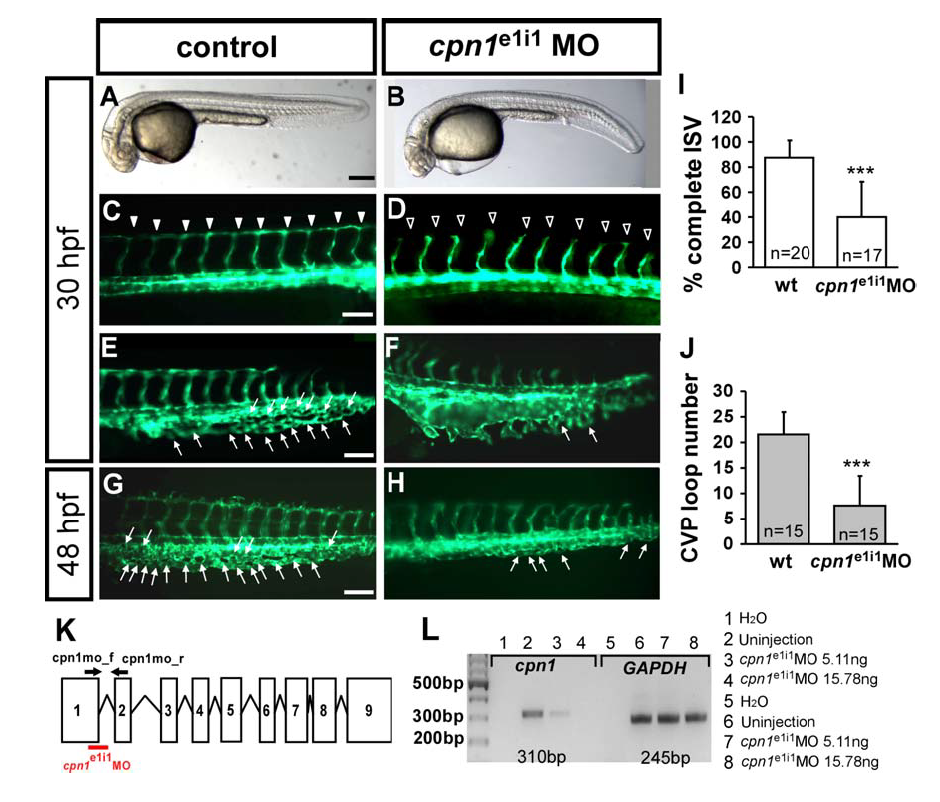Fig. S2
Specificity of cpn1 knockdown by splicing morpholino. (A–H) The knockdown of cpn1 by splicing MO caused similar defects in the vasculature, including defects in ISV growth (hallow arrowheads in D) and less CVP sprouting (F) and loop formation (H) (arrows) compared to wild-type control. (I) The percentage of completed ISVs decreased by about 47% in cpn1e1i1 morphants (n = 20 in wt and n = 17 in cpn1e1i1 MO) at 30 hpf. (J) The loop formation in CVP exhibited a decrease number 7.6 ± 5.8 in cpn1e1i1 morphants compared to wt control (21.6 ± 4.4) (n = 15 in wt and cpn1e1i1 MO) at 48 hpf. (K) The scheme presents cpn1e1i1 morpholino targeting the pre-mRNA structure of cpn1, suggesting the missplicing of a fragment, which can be detected using a cpn1mo_f and cpn1mo_r primer set. (L) Total RNA from controls or cpn1 morphants (injected with 5.11 ng or 15.78 ng cpn1e1i1 morpholino) was used in RT-PCR with primers for the cpn1 gene. In morphants injected with cpn1e1i1 morpholino, GAPDH levels remain unchanged, whereas the amount of cpn1 product (310 bp) decreased with an increase in the cpn1e1i1 morpholino dose. The data suggest that cpn1e1i1 morpholino-knockdown specifically targets cpn1.

